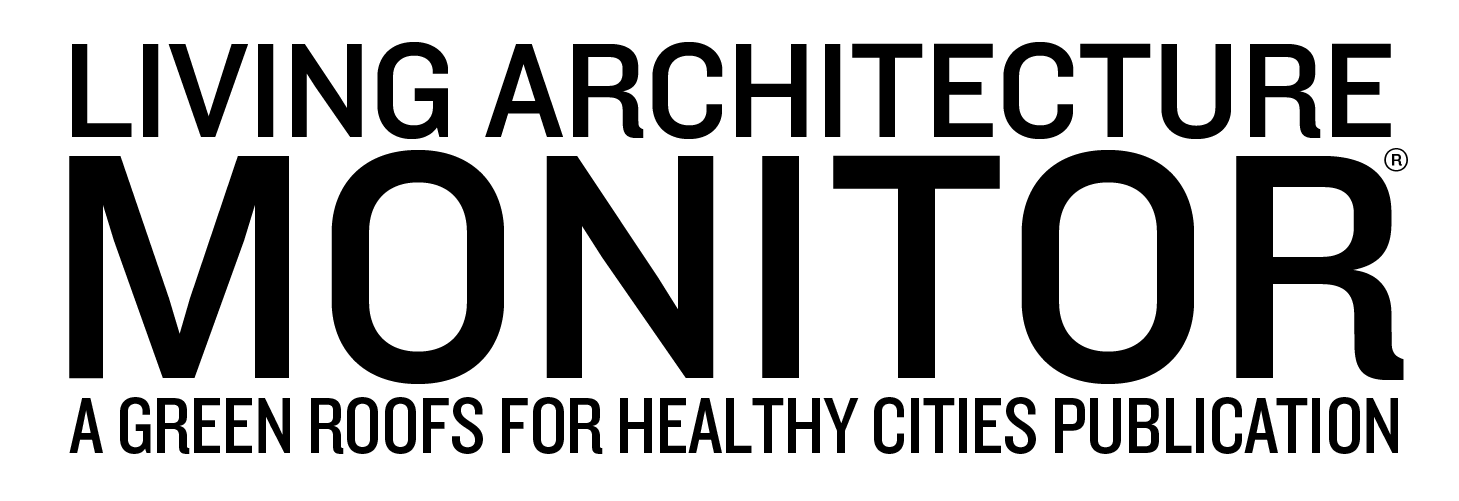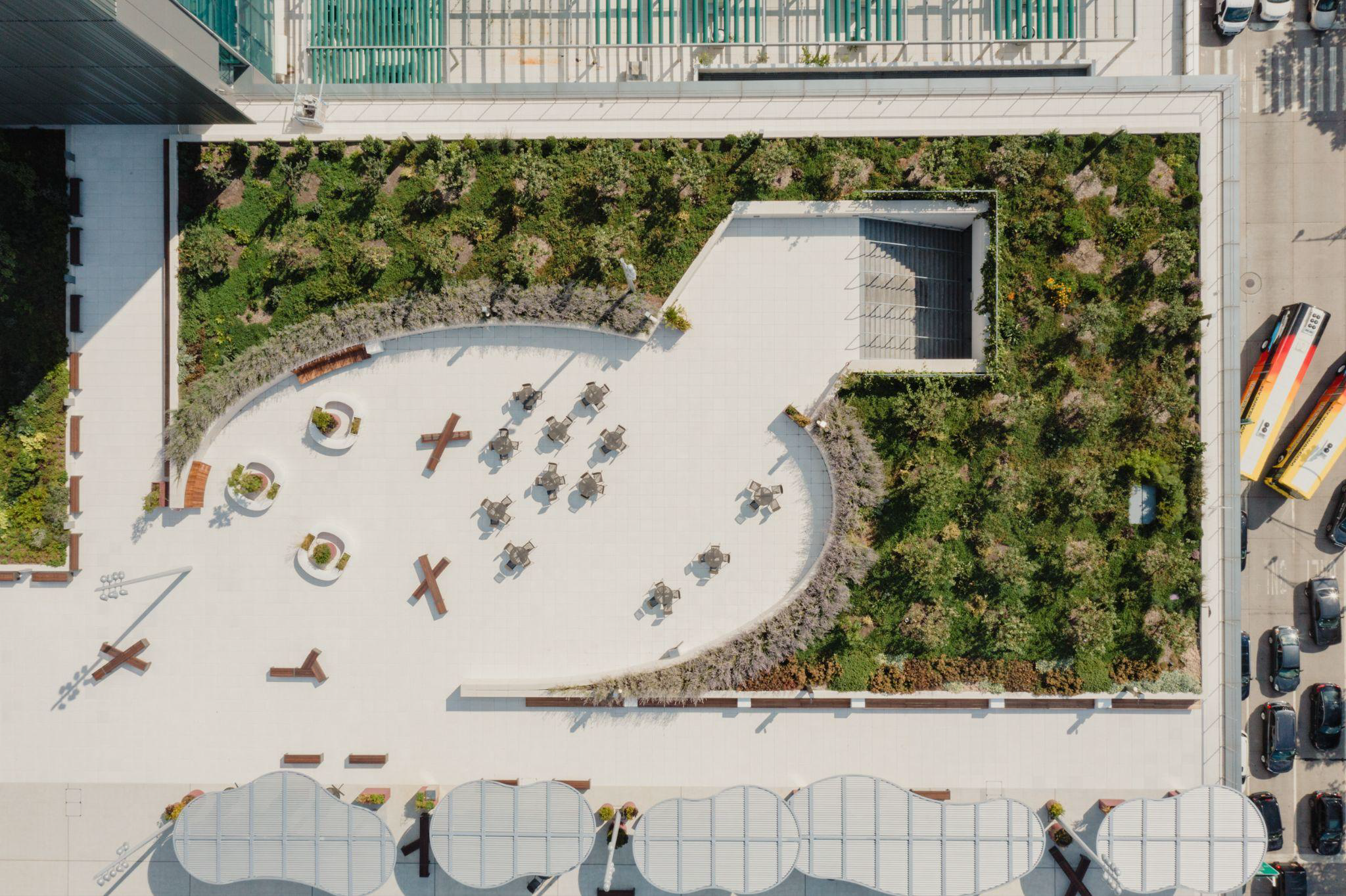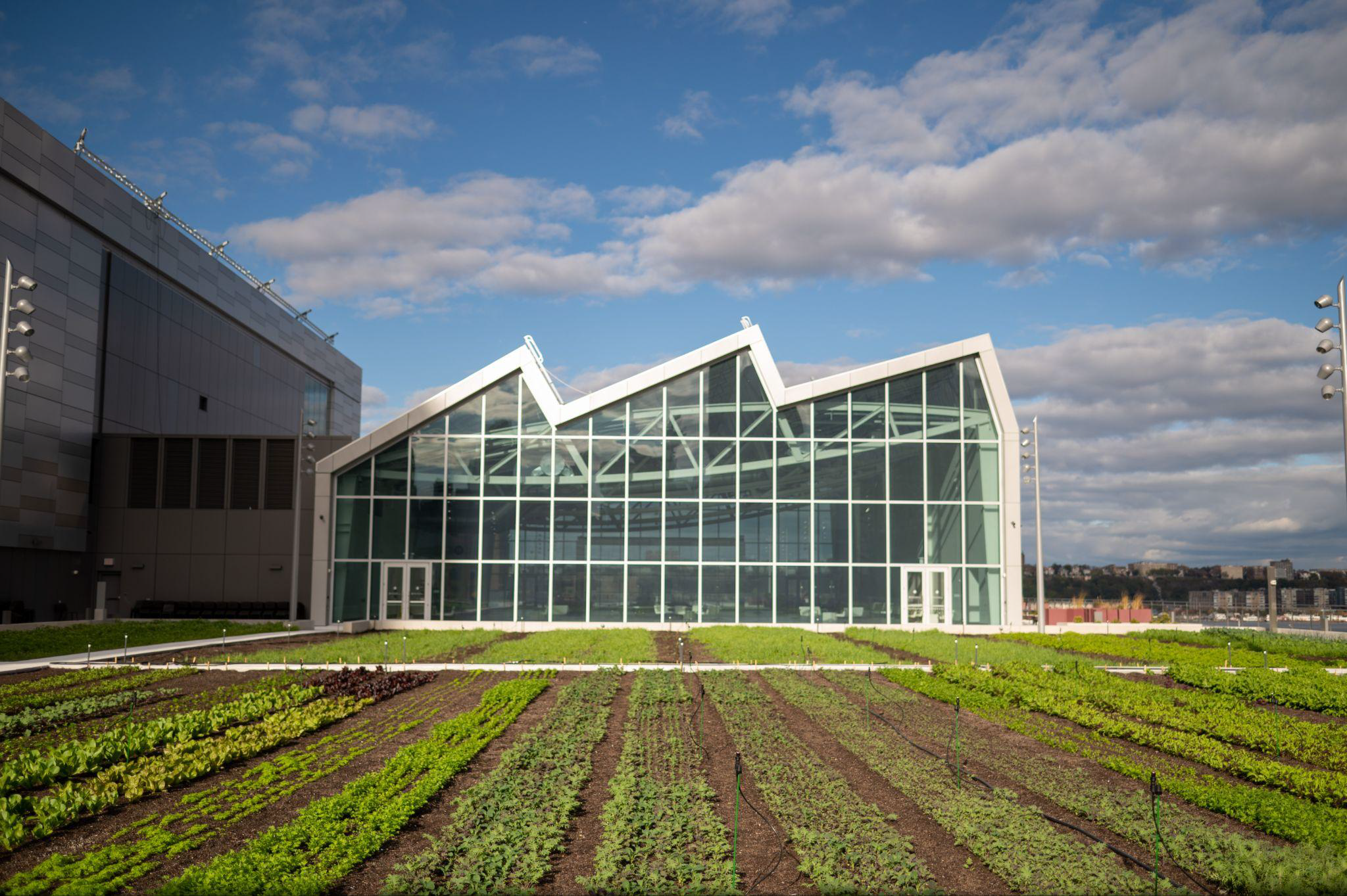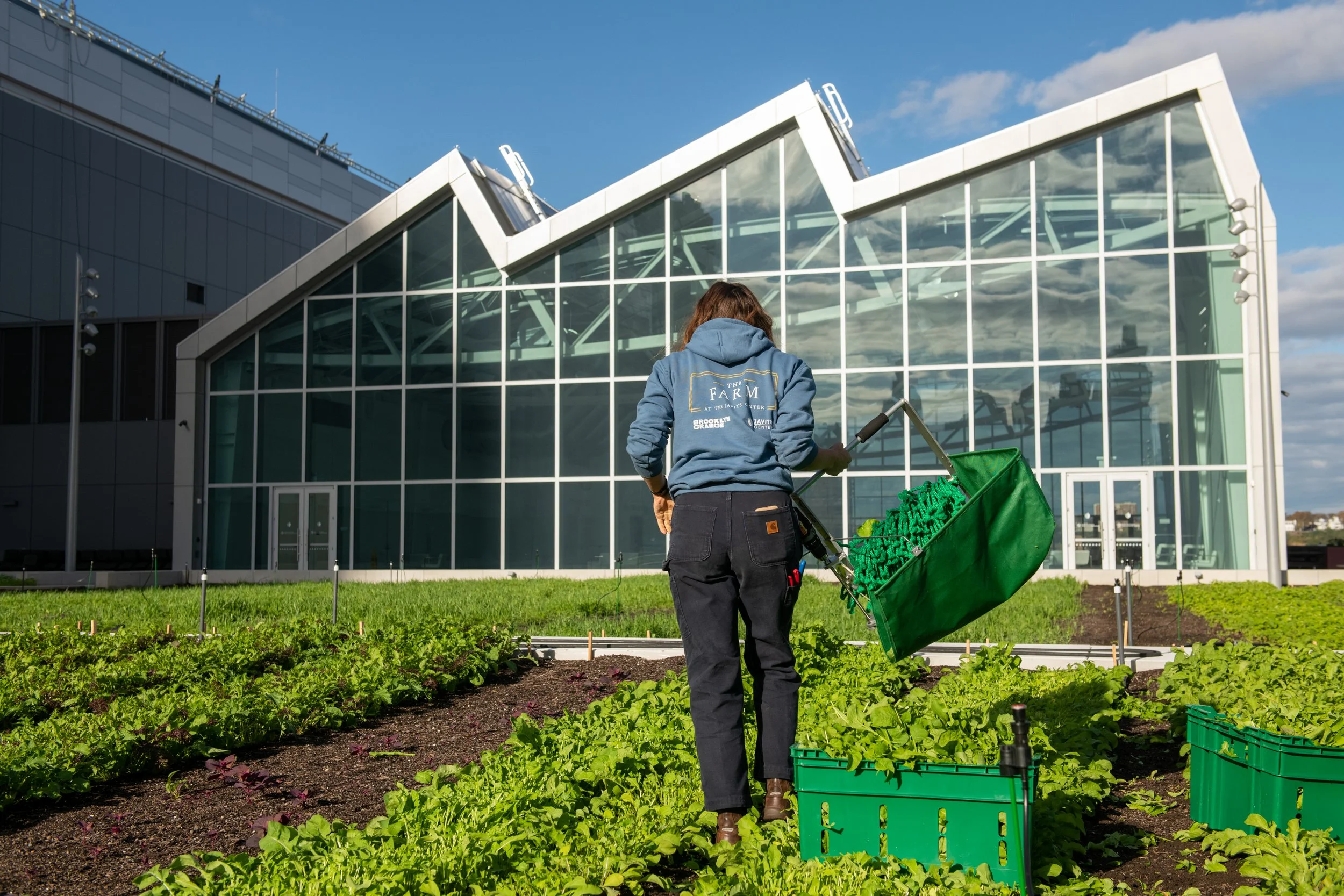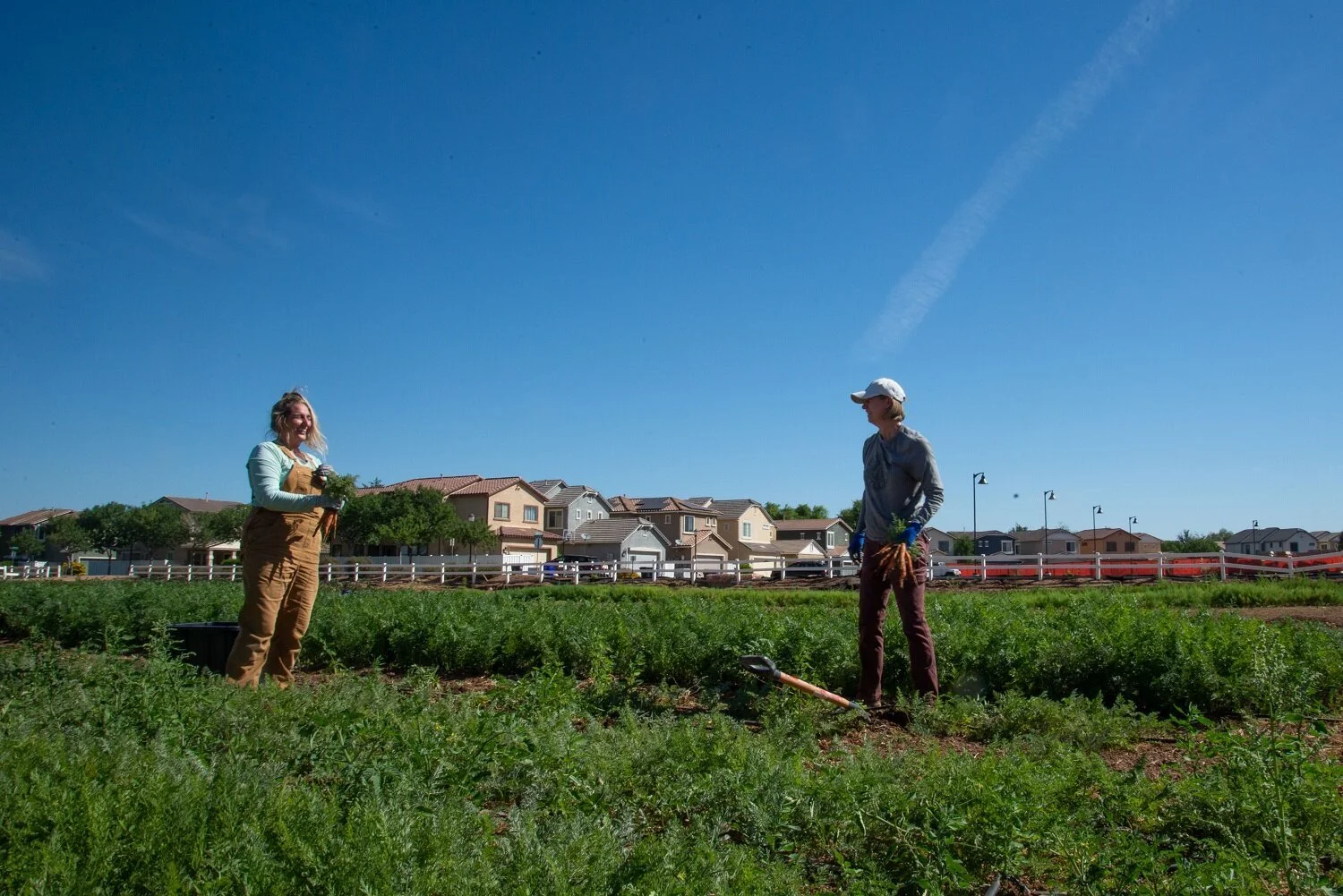Award Winning and Innovative Rooftop Farming in the Heart of Manhattan - The Javits Center
Advertisement
The center includes a 10,000 sq ft Orchard & Food Forest. The orchard includes native plants such as elderberry, beach plum, pawpaw, serviceberries, and more. Photo: Brooklyn Grange
Architect of Record: TVS Design
Design Builder: Lendlease
Design & Consulting: Stantec
Farm Design Consulting & Operator: Brooklyn Grange
Green Roof Installation: American Hydrotech
Landscape Architecture: Moody Nolan
Architecture, Landscape and Urban design: WXY architecture + urban design
Landscape Design: Siteworks
Owner: Javits Center
Category: Urban Agriculture
Project: The Farm at the Javits Center
Location: New York, NY
Award Winner: Brooklyn Grange
“As an exciting milestone in our sustainability journey, the Farm at the Javits Center enables us to expand how we model sustainable practices and green infrastructure, showing what’s possible for large venues and destinations worldwide. What better way to engage our visitors, employees and community in urban agriculture than through roof-to-table experiences that result from a harmonious collaboration of crop planning between the Brooklyn Grange farm crew and our on-site culinary team, Cultivated. With each rooftop harvest, we’re proving the power of sustainability and proud of it.”
The Jacob K. Javits Convention Center sits on the lower west side of Manhattan in New York City and serves as one of the busiest convention centers in the United States, hosting conference, trade shows, and other major events throughout the year. 2014 saw the completion of a significant facelift for the facility, including, among other upgrades, a 6.75 acre extensive green roof, the second largest in North America at the time. Since then, the Javits Center has enjoyed a wealth of benefits from the green roof such as a reduction in energy usage, better temperature regulation, substantially reduced stormwater runoff, and an unexpected explosion of biodiversity, attracting birds, bats, and insects that had previously been absent from the area due to it’s being so highly developed and impervious.
Today, the Javits Center operates one of the most robust sustainability programs of any building in New York State, further supported by the completion of a 1.2 million square-foot expansion project, led by the New York Convention Center Development Corporation, contractors Lendlease and Turner and architectural firm, TVS Design. This project encompasses several innovative concepts designed to push the boundaries of sustainability and create a path for future initiatives. Since 2014, the Javits Center has reduced the building’s energy consumption by 26%, created a rooftop wildlife habitat and installed energy-efficient equipment throughout the structure on Manhattan’s West Side. As a result, the expansion has earned LEED Gold certification from the U.S. Green Building Council.
Advertisement
An aerial view of the rooftop farm. Photo: Brooklyn Grange
One of the key features of this expansion was the development and implementation of the Javits Farm by Brooklyn Grange, the leading rooftop farming and intensive green roofing business in the US, operating the world’s largest rooftop soil farms, located in New York City. The one-acre rooftop farm includes green roof vegetable growing beds, a 3,500 sf climate-controlled greenhouse, and a 10,000sf rooftop orchard and food forest with 38 apple and pear trees along with over 100 native, edible and perennial plants in a “mobile garden” of movable planters that play homage to the medicinal and ancient wisdom of Native American cultivars from the area. It is one of the largest rooftop food forests in the world. A wash/pack room adjacent to the greenhouse makes farming operations more efficient and allows farmers, the in house culinary team and the sustainability team to collaborate seamlessly, reduce food waste and educate others about urban agriculture. A custom composting system uses a series of pipes and forced air to improve decomposition rates and aerobic composting quality.
Producing over 50 crops, the harvests are directed to the convention center’s kitchens where the produce is incorporated into customer meals served throughout the year or donated to local food pantries. The Farm, along with the Food Forest and Perennial Meadow, are all managed using organic practices in order to protect insects and soil microorganisms. Tilling is also minimized to near zero, which allows the soil to retain life, carbon dioxide capacity, and healthy natural structure. Nutrients are provided by compost and tarped cover crops. Small amounts of organic dry nutrient are amended as necessary. The Farm is New York State Grown & Certified, as well as well as certified in Good Agricultural Practices as of 2021. The Javits Center offers weekly tours via it’s sustainability program, and event organizers, exhibitors and attendees engage with the Farm and Food Forest through roof-to-table meals as well as tours and al fresco events. When there are no events using the space, the farm and terrace become a popular destination for breaks and access to green infrastructure and sunshine for employees to benefit from.
Advertisement
“The farm and food forest that Brooklyn Grange designed and operates for The Javits Center demonstrates the power of urban agriculture to catalyze green roof infrastructure, engage urbanites with nature, and promote the importance of an environmentally sustainable diet. This dynamic use of the rooftop provides critical ecosystem services, and produces high quality food for the conference center, not to mention a uniquely educational and inspiring experience for visitors. Brooklyn Grange is proud to apply our years of experience developing rooftop farming best practices via care of the soil ecology, trees, and perennial understory, encouraging diversity and habitat throughout the system. The food forest has great potential to be replicated and evolved elsewhere in cities, including in urban parks.”
Among the other sustainable highlights of the expansion are:
Crops growing on the Javits Farm, which can be seen from the inside of the building. Photo: Brooklyn Grange
The Rooftop. In addition to the farm, the rooftop event space also features a meadow, a shade garden, a 10,000 sf orchard and food forest and several ornamental planters with a focus on pollinator friendly and native plants;
Beehives. A second apiary with 4 new honey bee hives on the farm expands the program and pollination efforts as well as a chance to educate visitors about various aspects of the sustainability program in addition to the first apiary with 5 hives on the extensive green roof of the facility.
Water Efficiency. Two underground cisterns capture and treat rainwater to be used for irrigation on the roof, reducing the need for potable water for irrigation by at least 50%.
Bird Friendly Glass. All glass on the 1.2M sq ft building expansion as well as the 3,500 sq ft greenhouse re fritted and bird friendly. Since 2014, bird friendly glass has reduced bird collisions and mortality by at least 90%. The Javits Center works closely with NYC Audubon to study urban ecology and biodiversity on both the extensive and intensive green roof. NYC Audubon was able to use the Javits Center as a model for how effective bird friendly glass can be. Their lobbying efforts helped to pass LL15, which now mandates that all new construction in NYC must use bird-friendly glass within the first 75 feet.
Solar energy project. 1,400 solar panels on the Javits Center’s extensive sedum green roof, which also serves as a habitat for area wildlife, will be supplemented by a 3.5-megawatt battery storage system. The project is the result of a public-private partnership between the Javits Center, the New York Power Authority (NYPA), and Siemens Industry, Inc. The system will be the largest single rooftop solar project and will include one of the highest-capacity battery energy storage systems in Manhattan. 1.61 MW of solar PV combined with 3.5 MW of battery energy storage will provide at least 10% of our energy consumption from a renewable source.
Advertisement
The Javits Expansion and Farm support existing Javits Center resilience programs and drive sustainability in several key ways.
Water Management
The building includes two stormwater detention tanks with a combined holding capacity of 344,000 gallons. Water from three different rooftops drain to a series of plumbing chases that drain into the two tanks located underground. Stormwater and excess drainage water from the farm is captured, filtered, treated and then pumped back up to irrigate the farm and all other plantings on the event terrace. This includes the 10,000 sf orchard and food forest, shade garden, pollinator meadow, and native ornamental plantings. Stormwater design reduces runoff by at least 25% and removes 80% of total suspended solids from water. Stormwater used for irrigation also reduces the need for potable water to be used for irrigation by at least 50%.
There is a lot of plant biodiversity on the farm. Photo: Brooklyn Grange
Habitat and Biodiversity
The Orchard and Food Forest consist of 40+ fruit trees, including dozens of apples, pears, elderberry, beach plum, pawpaw, serviceberry. The Food Forest's Understory also includes dozens of species of perennial plants - including gooseberry, asparagus, strawberry, concord grapes, currants, cherry laurel, Yaupon, inkberry, comfrey, horseradish, chives, Rhubarb, and Angelica. The Food forest and surrounding Meadow and perimeter plantings include habitat for pollinators, insects, birds, soil microbiome. There are also dozens of native perennial flowers in the Meadow with staggered bloom seasonality. The farm also collaborates with the American Audobon Society, which has been tracking bird, bat, and insect species.
Materials and Construction
As a part of the project, 75% or more of all construction waste was diverted from landfills for reuse, and all construction materials were chosen with sustainable characteristics including high recycled content, locally sourced (within 500 miles) and sustainably harvested wood.
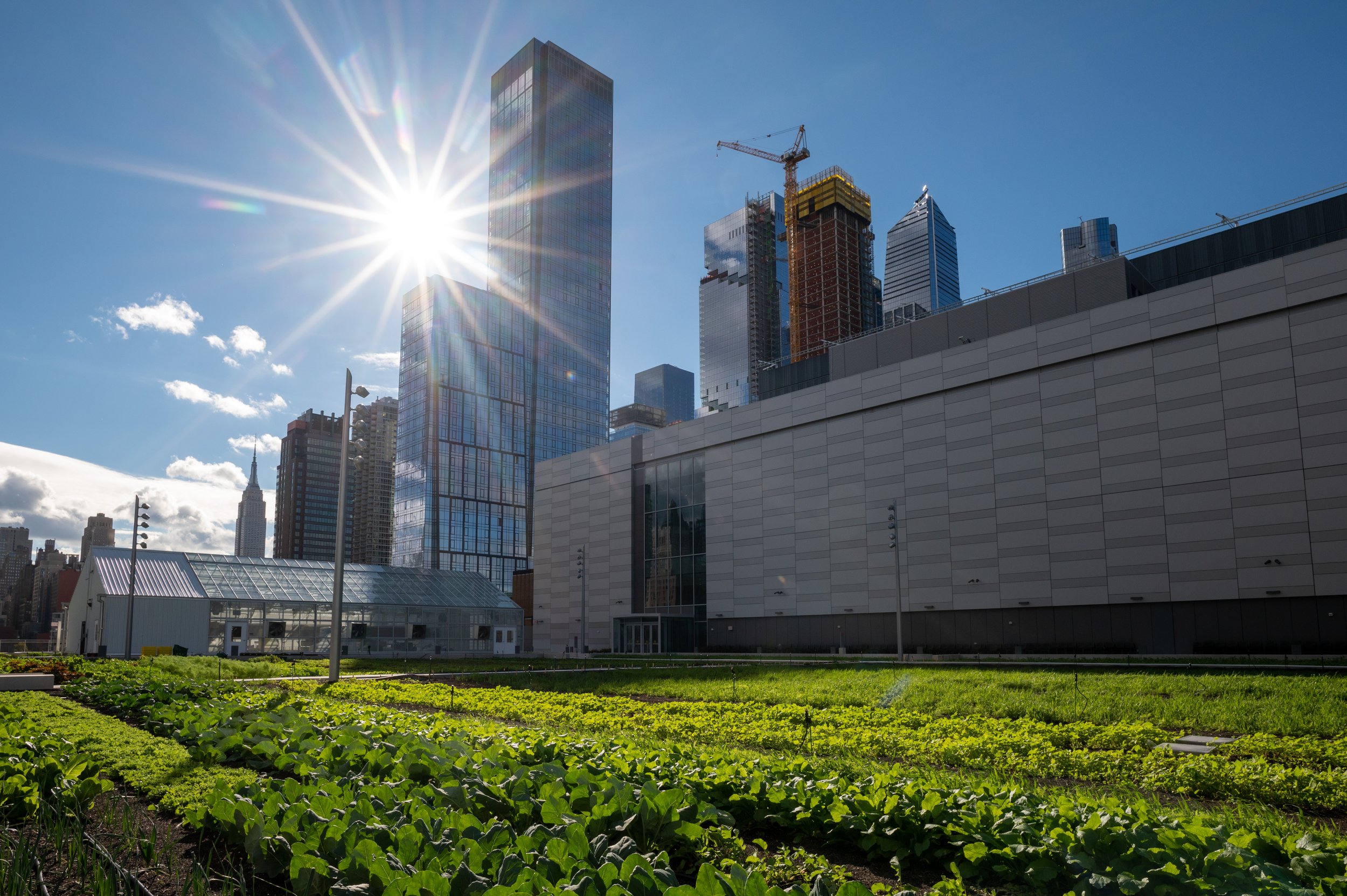
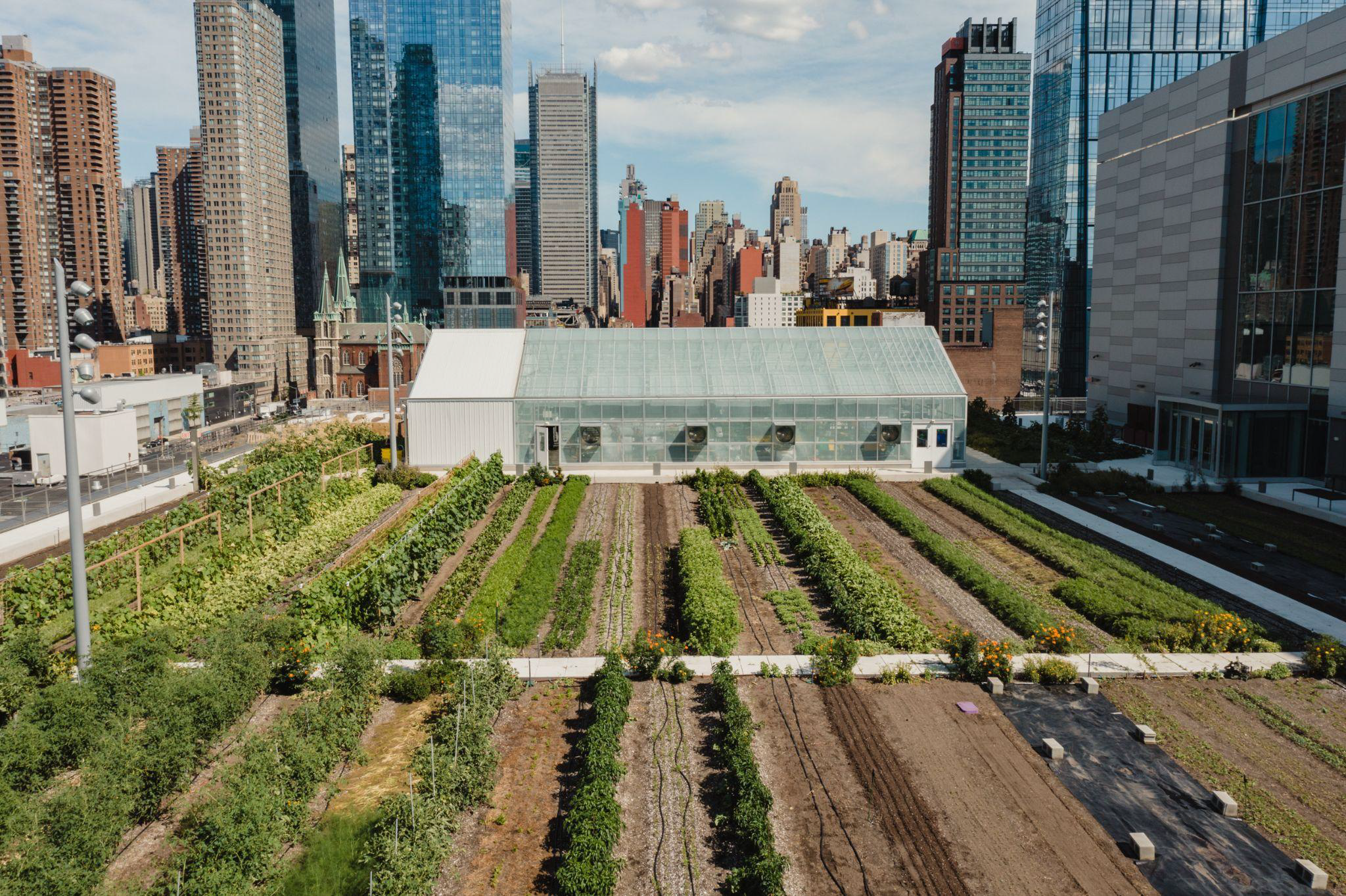
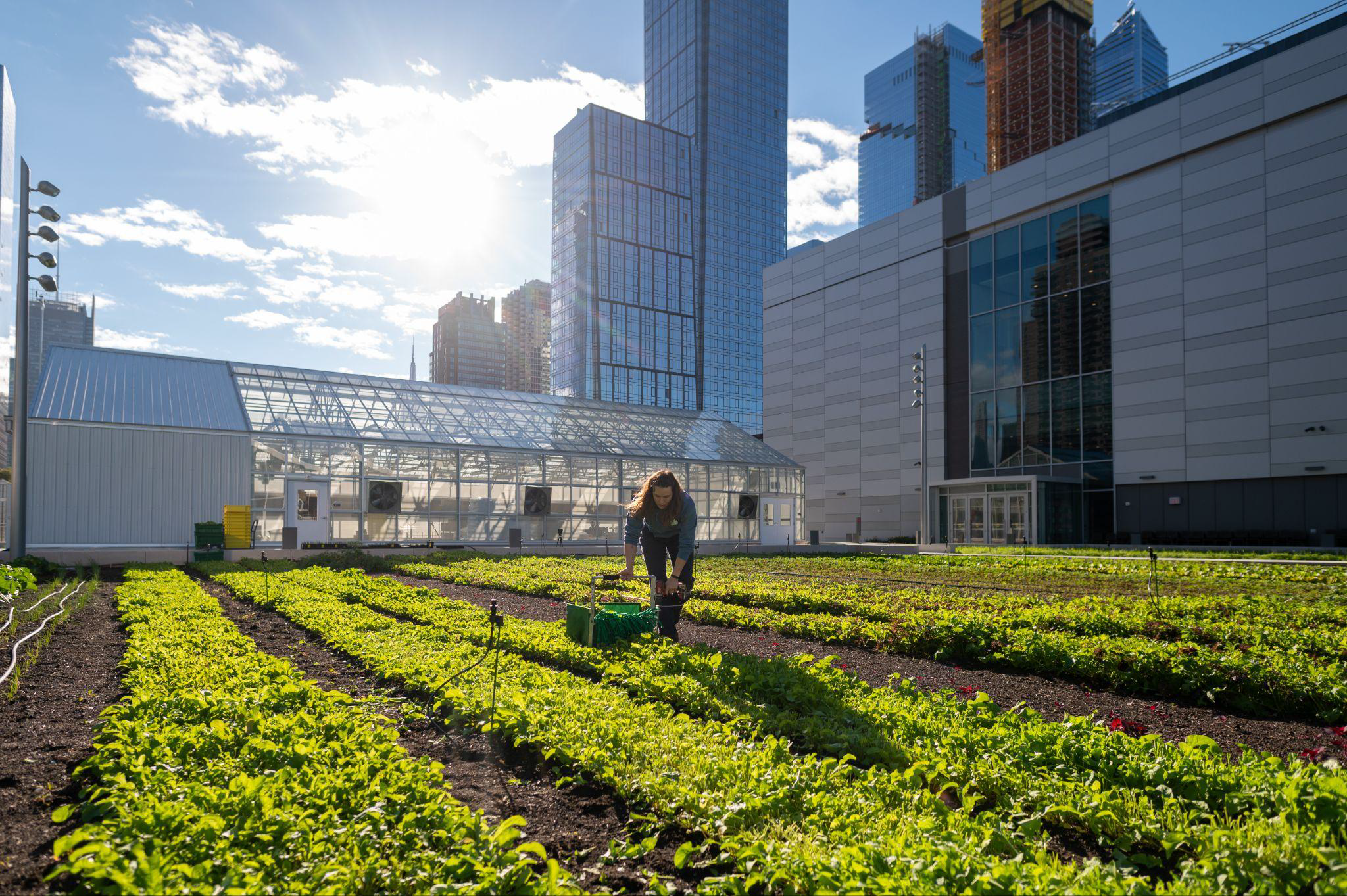
Photos: Brooklyn Grange
Advertisement
The Javits Center is a model of sustainability, pushing the envelope for what it means to be a green building and venue while performing operations to be a better neighbor. Working with Brooklyn Grange and the design build team for this project has allowed the facility to amplify its sustainability mission in how the farm and terrace were designed, constructed and operated today.
For more information on this award of excellence winning project please visit the Javits Center website.
Brooklyn Grange operates numerous rooftop farms in New York.
